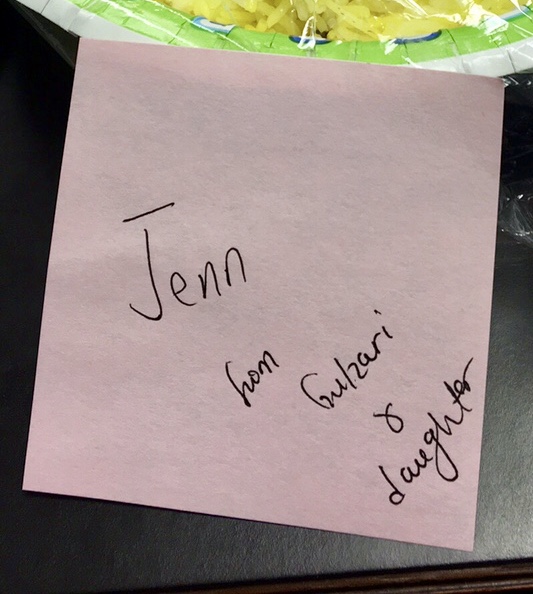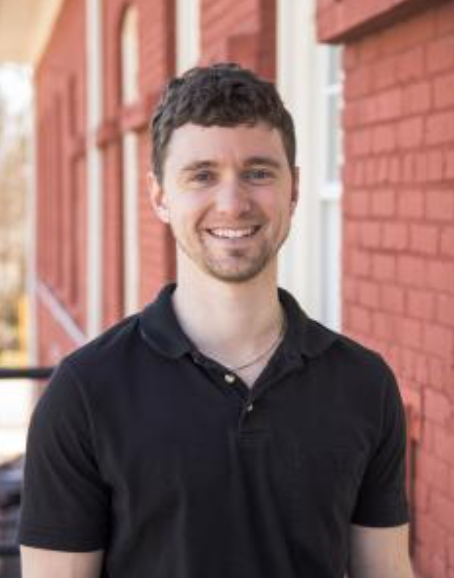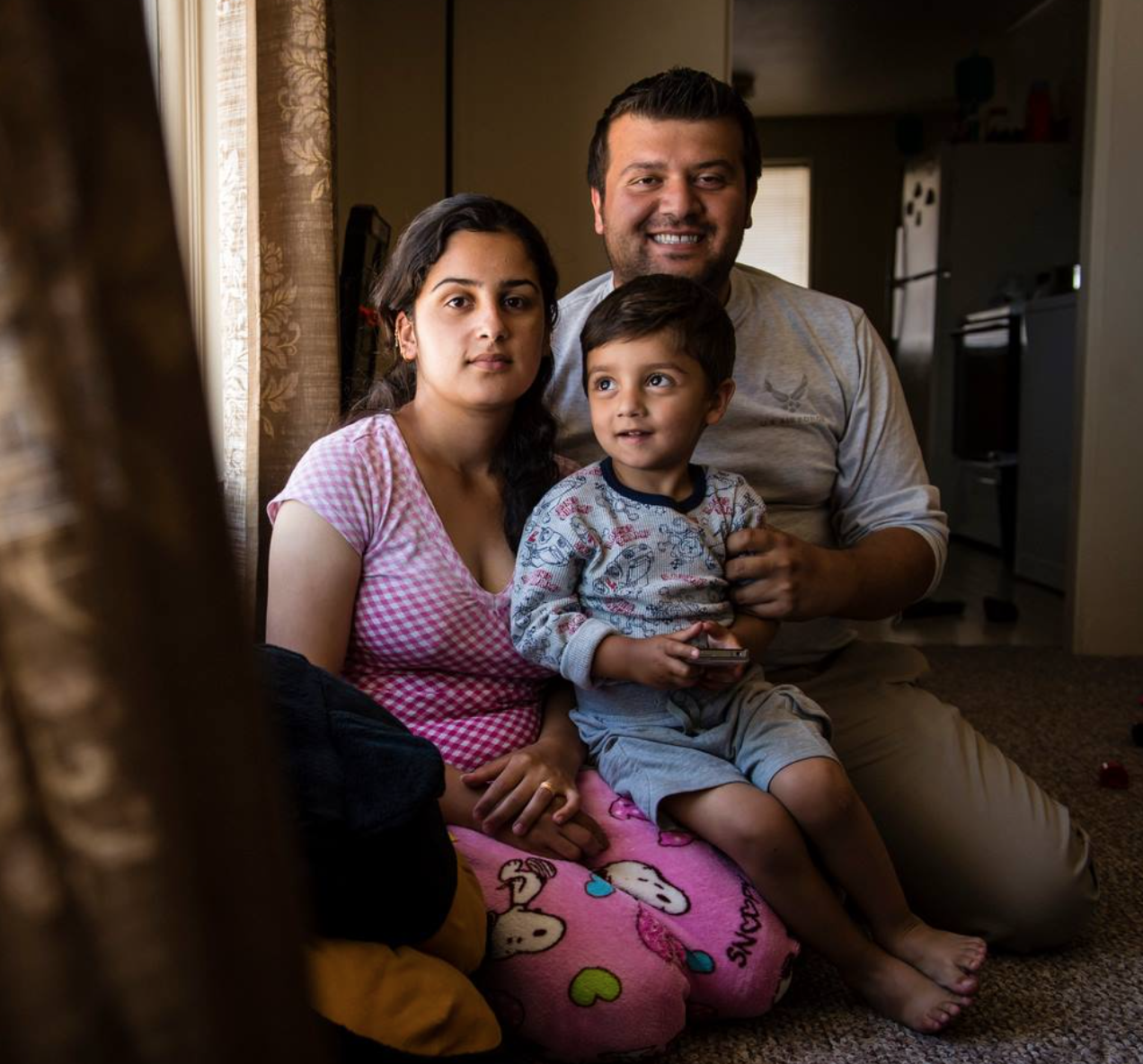The impact of the Trump Executive Order On Immigration: an interview with Jennifer Foy
[Note: Read here my interview with Marlene Myers, NC State Refugee Coordinator. These posts are part of my continuing research on local aid workers.]
UPDATE: The situation regarding the Executive Order On Immigration remains extraordinarily fluid on many fronts. Wednesday World Vision issued a press release that was published as a full page ad in the Washington Post. The title, “Evangelical Leaders from All 50 States Urge President Trump to Reconsider Reduction in Refugee Resettlment” says it all.
The impact of the Trump Executive Order On Immigration: an interview with aid worker Jennifer Foy
One basic sociological truism is that everything is connected to everything else, and, increasingly, what happens in one part of the world has ripple effects around the globe. The bigger the stone, the more far reaching the ripples. Impact meant for a contained target almost certainly has ramifications far beyond the prime intent.
And then came President Trump adding a whole new dimension of volatility.
Any social change engineered by politicians or activists alike has many consequences. The manifest or intended purposes may seem straightforward (“make our nation safer”), but much more important perhaps are all of the unintended and/or indirect impacts, some positive and some very, very negative. Executive Orders, especially those signed without proper vetting, are a case in point. The many repercussions of the EOOM are being illuminated every day in the news, and none appear to be positive and provide material for future post. The present task is to take a local, domestic look and to perhaps provide more context around the refugee situation in the United States.
A calm but passionate aid worker voice
Earlier this week I talked with Jennifer Foy, the Executive Director of the World Relief offices in High Point and Winston-Salem, NC. Our conversation came right on the heels of the Trump Executive Order On Immigration (EOOM).
She and her staff watched the breaking news at 4:45 Friday afternoon and immediately began planning next steps. Though rumored for days that this EO would come out, the reality that late afternoon was still jolting.
Later that evening Jennifer sent messages to both staff and clients that an information session would be held at their offices Saturday morning. At that meeting she and her staff did their best to explain the implications, outline positive steps people could take, and steps they should not take (e.g., travel outside the US).
On Wednesday (the morning of our meeting) she found on her desk a plate of food. Here’s the story.
“One of our client’s didn’t speak English very well, but she literally knew that this was going to hurt our office, so she brought in a plate of food at every desk at our office. So I have a nice plate of Afghan food to eat this afternoon at my desk.”
Gulzari is an Afghan woman, a single mom with children, and a recent refugee who does not speak English. She does not have a lot of money but found the resources to cook a meal for 24 people, individualize the plates with names and deliver them – using public transportation. The gift of food did not mean she was giving from abundance, it likely cost her a meal or two, according to Jennifer. Among the refugee families Jennifer knows there is a ethos of hospitality that is common to all, regardless of culture.
“The difference in what hospitality means, it is much more that just a clean house and a cup of coffee…it goes well beyond that in so many ways and we see that here in ways that most Americans have never experienced.”
This gesture is an indication of a universal empathy and response that transcends cultures. Jennifer points out that this is a characteristic response in the refugee community. They feel so deeply appreciative and they want to honor the gift of being accepted into a new home in any way they can. This one example is not an exception, but rather just one among countless others to which Jennifer and her staff could point.
Understanding this fully one must keep in mind that the ‘refugee community’ is and is not a monolithic whole. Yes, refugees all share a common experience once they come to the United States and are seen -and to an extent see themselves- bound together, but the fact is they come from dozens of different cultures and cultural traditions. Generalizations made about ‘refugees’ no not deny their cultural and linguistic diversity but rather celebrates their common humanity, a sentiment aid workers around the world know very well.
No, neither Jennifer nor I are trying to sanitize or romanticize the refugee population; they are human and occasionally make human mistakes. That said, both anecdotal and hard evidence indicates that, as a whole, their crime rates are much lower, their level of community involvement much higher, and the high value and respect they place on their new homeland is amazing. Read here my interview with Marlene Myers, NC State Refugee Coordinator for more examples.
Here is Jenn describing the gift of food. It was not the only one her staff has received from clients in the last week.
“You are fracturing the foundation”
Doing a thorough social impact assessment means comprehensively examining the immediate impacts of, in this case, the EOOM, and certainly that is where most of the news stories are focusing: people stuck in airports, protests, students and faculty not able to come back to (our leave) campus, and so on. But beyond the now there is the near and not-so-near future, and that is where our conversation leads us.
In short, though the restrictions on immigrants and refugees are as we understand now limited to 120 days, the impacts of this 4 month hiatus will last far beyond those years. Jennifer puts it this way,
“Nationally what we fear is that this can and will shut down a lot of small offices [handling refugee’s nationally], or offices that weren’t as financially well supported…. What’s going to happen is that all of these agencies are going to close…. this is 35 years of history of building this network…you are essentially fracturing the foundation of the refugee network.”
Jennifer seems confident that the longer term impact of the EOOM will yield a more robust system, a bit more able to anticipate and respond to existential challenges. I hope she is right, though as a sociologist I know that once broken systems tend to struggle recovering. In the short term it appears certain that if aid organizations serving refugees have to close or severely cut staff there will be at minimum tension and uncertainty among this population.
The emotional toll and compartmentalization
As the executive director Jennifer knows that her staff and clients take cues from her behavior and general reactions, and that even in -or especially because of- the unique and confusing circumstances surrounding EOOM she must maintain an outwardly calm and assuring demeanor. Her staff must be exactly the same way whenever they interact with clients, holding back more negative comments and emotions that would be counterproductive.
“I think most staff are asking the question everyday of how to balance the responsibility they have to help the people and serving [being mindful about] with their own emotions. I think they have not fully figured out how to juggle both of those opposing obligations. They can’t show panic, they can’t show fear because there are dozens of very vulnerable people who have had enough of that.”
In other words, the aid workers are required to compartmentalize their personal response from their professional response all week hile maintaining an aura of humanity, compassion and understanding.
When Jenn came in Monday morning she gave her usual round of hugs, but the toll was beginning to become real. Monday mornings there is regular a meeting among the managers. Jenn knew that if the EOOM was real, there would be impacts both on the staff and the clients. She said, “I was sitting in a circle with 25 people, knowing that some may not be with us in coming weeks.”
This very scene, one has to assume, is being repeated in similar offices throughout the US.
By pushing the task of carrying the conversation on to others Jenn was able to protect herself and compartmentalize in order to hold everything together for her team members. There were tears, but not then, not around the manager’s table meeting or in from of clients.
To keep positive and strong she knew that for her and her staff members all they would have to do would be to spend time with the clients, walk into their houses as a reminder to keep going, and that’s enough.
Near the end of our interview Adam Clark, the Office Director from World Relief in Durham, joined us and we expanded the conversation to include discussion of the many volunteers and college interns both offices have. Both Adam and Jennifer agreed that in the coming weeks non-paid staff will have to take more tasks. Jennifer was optimistic about this and said, “They’re ready to pick up and ready to serve.”
I asked what kind of messaging were they encouraging them to pass on and what do you think they’re picking up?
Adam offered, “We see every member of our team as an ambassador to their own circles. Many team members have a foot in very different political worlds. They may face a lot of opposition at home, at church, and there are a lot of questions. We encourage them to listen, so they can engage in conversations, because we believe that we have more in common.”
Regarding the ongoing educational role of all the staff including interns he went on, “People who are reacting in a different way than they [those who would support the EOOM] are doing so because they have valid concerns. Whether those concerns are well informed is a different matter.”
Aid workers are a bridge between worlds and world views more so than perhaps any profession, and serving this function may not show up prominently in any job description, but remains critically important.
Getting people woke, one by one
Earlier this week Jennifer spent a few hours at a local TV news station and after being on a small ‘expert’ panel about the impact of EOOM she and her counterparts answered phone calls from the public. The vast majority were supportive of Trump’s EOOM and railed against ‘immigrants and refugees’ citing a variety of reasons. One of the frustrations felt by Jenn and many of her staff is that they know from countless experiences that if most of these people would only have the opportunity to simply share a meal with a refugee family they would have their eyes and hearts opened.
One story is that of an older man, maybe late 50s or early 60s, who was well-known in the bar scene around the small town of High Point. A family of Syrian refugees was placed by Jennifer’s organization into the vacant house right next door to where he lived. His initial reactions were predictable and negative, but now, one year later, the little Syrian children next-door run in and out of his house as if he were their uncle, the family share meals together, and his opinion about these Syrian refugees has been altered 180°. They are no longer abstract threats but real people with faces, emotions, sharing with him the simple desire for a life of safety, dignity, and marked by the compassionate fellowship of close friends and family.
Where to from here?
This story continues to unfold, and as I write this word of a Seattle judge halting Trump’s immigration order is on my news feed. As the situation alternately becomes more and less clear aid workers like Jennifer remain focused. She and her staff -and their countless counterparts across the United States- read, respond and keep moving forward with their mission of serving refugees in the best way possible.
For comic relief we can watch as the European Union trolls Trump with a friendly competition to be “second”, but breaks like these seem a guilty pleasure when there are so many immediate needs.
Some bullet points to share
Finally, here are some facts that Jennifer and other staffers share as part of their ongoing social media push to educate:
• The EO refers to 9/11 three different times as a reason for new “extreme vetting” for the refugee program. ZERO of the 19 hijackers were refugees. 15 of the 19 were from Saudi Arabia, which is not on the list of suspended countries.
• ZERO Americans have been killed in a terrorist attack by a refugee. About 3 million refugees have entered the US since 1980.
• Refugees are highly screened immigrants. Much more vetted than other visa carrying immigrants.
• The current vetting process for a refugee takes, on average, 1.5-2 years.
• Syrian refugees are victims and are fleeing from real and incredibly dangerous persecution.
• The situation in Europe is COMPLETELY different than in the US. Refugees do not walk across (or swim to) our borders. To arrive in the US, refugees go through an organized, thorough, complex vetting process.
• Resettlement to another country is the LAST resort for these individuals. They are identified as refugees because they canNOT return to their home country.
• The United States was founded by a group of people fleeing religious persecution.
There will be edits and additions to this post, but in the meantime contact me if you have comments. If you feel moved to help the refugee program in the United States directly read this and then donate.



 Follow
Follow